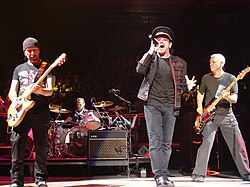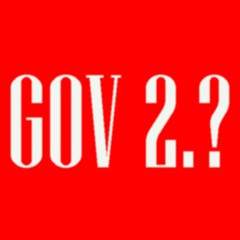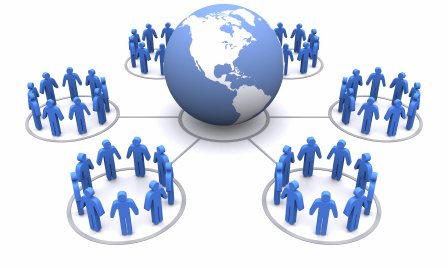What makes for a good day? When you get home at night do you feel like you have had a good day when it is filled with non-stop listening to others and you have had little to say? Or do you have a good day when you can say – “You know what, I had something to say that someone listened to, and I think it made a difference”?[1]
The desire to be recognized is one of the most powerful human motivations that all of us share. And it is at the core of many government 2.0 applications – often, cooperative platforms that enable complete visibility and back and forth between citizens and at times agency employees and officials.
Wikis, crowd sourcing, forums, and blogs are all examples of specific cooperative applications. These tool technologies are often touted as enabling inclusion of citizens, agency partners, and employees in a way not before possible. Many of these social tools are in fact designed to build social friendships or relationships in closed groups, or have a strong social element.
Social fear, too, affects citizen inclusion.
Of course the flip side of openness is the social fear that it creates.[2] It too is a powerful emotion.
Do you remember the first time that you walked to a podium in a public meeting to share your point of view? Did you have a lump in your throat and a pit in your stomach? For many in America and throughout the World, this is the case. We don’t naturally gravitate to public recognition. We fear looking stupid and being ridiculed. And so it is online.
Why would citizens with constructive ideas share them in an online food fight, where in today’s hyper-partisan world cooperative tools are used as mega-phones for deeply held beliefs, often at the expense and ridicule of those trying to be constructive? In that sense a good case could be made that they inhibit inclusion rather than expand it – standing alone.

 “…[W]e live in a society with peculiar expectations about the time course of success. We think that if a child isn’t blossoming as fast as the others in grade school, he or she will be hard pressed to eventually flourish.”
“…[W]e live in a society with peculiar expectations about the time course of success. We think that if a child isn’t blossoming as fast as the others in grade school, he or she will be hard pressed to eventually flourish.” Not all that long ago, the scientific community was justifiably ecstatic about having achieved mapping of the human genome – The Human Genome project. The promise was that by understanding genetic mapping we could find cures for disease, disability, and perhaps
Not all that long ago, the scientific community was justifiably ecstatic about having achieved mapping of the human genome – The Human Genome project. The promise was that by understanding genetic mapping we could find cures for disease, disability, and perhaps  It is emblematic of the times that nascent Gov 2.0 is without adequate descriptors readily accepted and simply described. This has less to do with the availability of labels than the fact that Gov 2.0 is a ship without a rudder— it still lacks a unifying theme and clearly articulated purpose behind the Gov 2.0 transformation. Gov 2.0 still means many things to many people—often different.
It is emblematic of the times that nascent Gov 2.0 is without adequate descriptors readily accepted and simply described. This has less to do with the availability of labels than the fact that Gov 2.0 is a ship without a rudder— it still lacks a unifying theme and clearly articulated purpose behind the Gov 2.0 transformation. Gov 2.0 still means many things to many people—often different. Words can be powerful. They influence purchases – “I’ll buy this good over that good”. “This good is better for me”. “I want that”. In government, they affect public opinion – “I am/am not for government sponsored healthcare reform”, “ I am for less taxes” “We need more roads”.
Words can be powerful. They influence purchases – “I’ll buy this good over that good”. “This good is better for me”. “I want that”. In government, they affect public opinion – “I am/am not for government sponsored healthcare reform”, “ I am for less taxes” “We need more roads”.